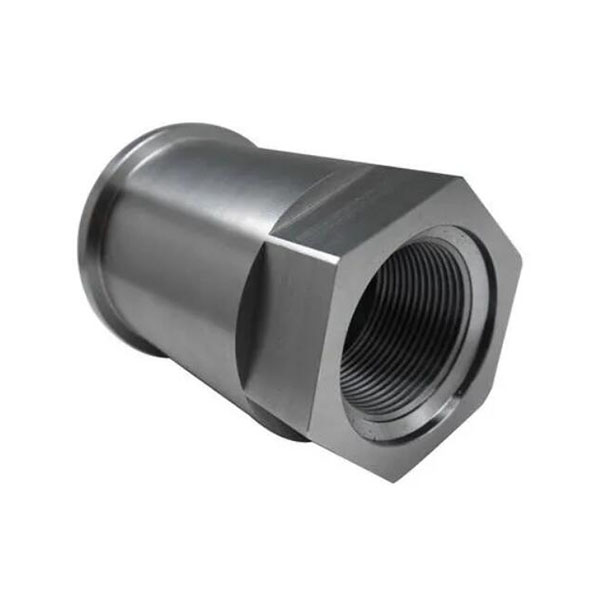The Importance of Precision CNC Turning Parts in Modern Manufacturing
2025-02-12
In the world of manufacturing, precision is a key factor in ensuring high-quality products and processes. One of the most essential technologies that provide this level of precision is CNC (Computer Numerical Control) turning. CNC turning allows manufacturers to produce complex and accurate parts that meet stringent specifications. Precision CNC turning parts play a vital role in various industries, including aerospace, automotive, electronics, and medical devices. In this blog, we will explore what CNC turning is, the advantages of precision CNC turning parts, and the industries that rely on them.
What is CNC Turning?
CNC turning is a machining process that involves the rotation of a workpiece while a cutting tool is used to remove material. The process is controlled by a computer program, which guides the tool along specific paths to achieve precise cuts and shapes. The turning machine typically consists of a lathe, a motor, and a tool that performs operations such as facing, drilling, and threading.
CNC turning is highly automated, making it ideal for producing high volumes of parts with consistent quality. The computer-controlled system allows manufacturers to create parts with complex geometries, fine details, and tight tolerances. Precision CNC turning parts are produced by using advanced CNC turning machines that can handle a wide range of materials, including metals, plastics, and composites.
Advantages of Precision CNC Turning Parts
1. High Accuracy and Tolerance
One of the primary benefits of CNC turning is the ability to achieve exceptional accuracy and tight tolerances. CNC turning machines are capable of producing parts with precision down to the micrometer level, ensuring that each part meets the required specifications. This is especially crucial in industries like aerospace, where even the smallest deviation can have significant consequences.
2. Consistency and Reproducibility
CNC turning machines are highly automated, meaning that once a design is programmed into the system, it can be reproduced consistently without human error. This consistency is vital when producing large quantities of parts, as it ensures that each part is identical in terms of dimensions, shape, and quality. Whether you need one part or thousands, CNC turning guarantees uniformity throughout the production process.
3. Complex Geometries and Intricate Designs
CNC turning is ideal for creating parts with complex shapes and geometries that would be difficult or impossible to achieve using traditional machining methods. With CNC turning, manufacturers can produce intricate designs, including tapered surfaces, grooves, threads, and contours. This capability is particularly useful in industries like aerospace and medical device manufacturing, where custom components with precise geometries are often required.
4. Reduced Production Time
CNC turning is a highly efficient process that minimizes the time it takes to produce a part. The automation and high-speed capabilities of CNC machines mean that parts can be produced faster than with manual machining methods. Additionally, CNC machines can operate continuously, reducing downtime and increasing overall production efficiency.
5. Material Versatility
CNC turning is suitable for a wide range of materials, from metals like stainless steel, aluminum, and titanium to plastics and composites. This versatility makes CNC turning an ideal choice for industries that require parts made from different materials. The ability to work with a diverse range of materials also allows manufacturers to select the best material for a particular application, ensuring optimal performance and durability.
6. Cost-Effective for High Volumes
While the initial setup cost for CNC turning can be higher than traditional methods, it becomes a cost-effective solution when producing parts in large volumes. The efficiency and automation of CNC turning machines reduce labor costs and material waste, leading to lower overall production costs. This is particularly beneficial for industries that require mass production of small or medium-sized parts.
Industries That Rely on Precision CNC Turning Parts
1. Aerospace
In the aerospace industry, precision is paramount. Components must meet strict safety standards and perform reliably under extreme conditions. CNC turning is used to create high-precision parts like turbine blades, engine components, and brackets. The ability to produce parts with tight tolerances ensures that aerospace components function properly and meet regulatory requirements.
2. Automotive
The automotive industry also benefits from precision CNC turning, particularly in the production of engine parts, transmission components, and structural elements. CNC turning allows manufacturers to produce parts that fit together perfectly, ensuring optimal performance and safety. The automotive sector often requires large volumes of parts, and CNC turning offers a cost-effective solution for mass production.
3. Medical Devices
In the medical device industry, precision is critical, as even the smallest defect can affect the performance and safety of the device. CNC turning is used to produce medical components like surgical instruments, implants, and housings for electronic devices. These parts must meet strict regulatory standards, and the precision offered by CNC turning ensures that they perform as expected in sensitive medical environments.
4. Electronics
The electronics industry relies on precision CNC turning for creating components like connectors, housings, and heat sinks. As electronic devices become smaller and more complex, the demand for precision parts continues to grow. CNC turning allows manufacturers to produce these small, intricate parts with high accuracy and minimal waste.
5. Defense and Military
The defense and military industries require parts that are durable, reliable, and capable of withstanding extreme conditions. CNC turning is used to produce a wide range of components, including gun parts, vehicle parts, and aircraft components. The high level of precision offered by CNC turning ensures that these parts meet the demanding specifications required for defense applications.
Conclusion
Precision CNC turning parts play an essential role in modern manufacturing, offering high accuracy, consistency, and the ability to produce complex designs with tight tolerances. From aerospace to automotive and medical device production, CNC turning is a versatile and cost-effective solution for creating parts that meet stringent industry requirements. As technology continues to evolve, the importance of precision CNC turning parts will only grow, enabling manufacturers to produce increasingly intricate and high-performance components for a variety of applications. Whether for large-scale production or custom parts, CNC turning remains a cornerstone of modern manufacturing.



